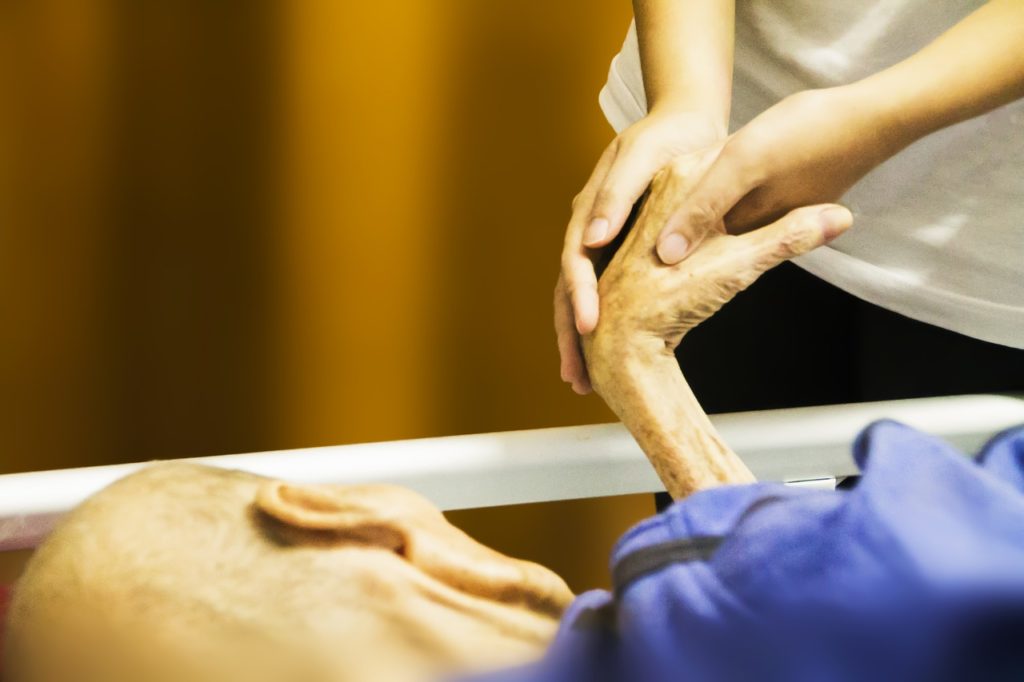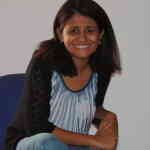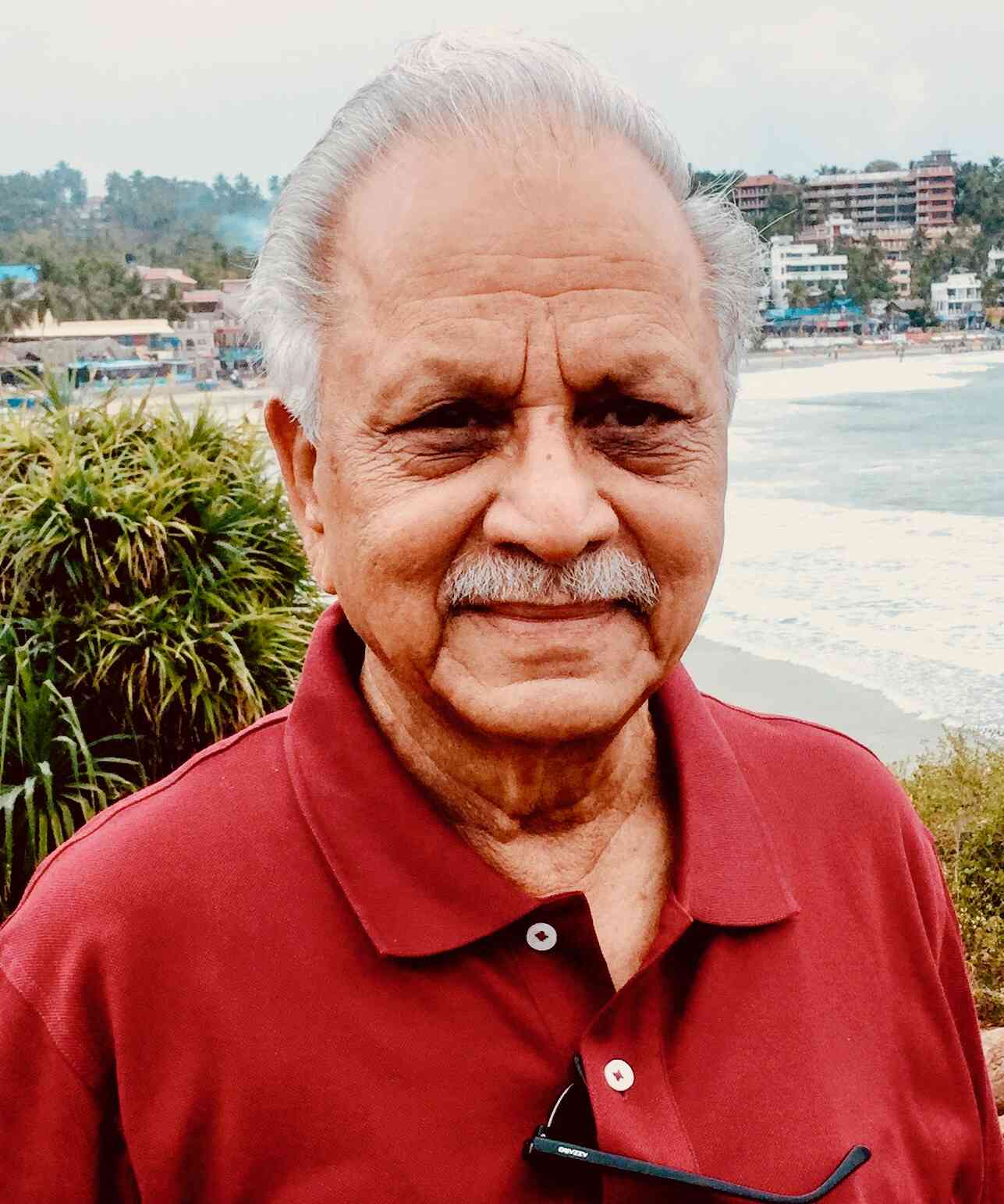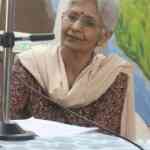All You Need To Know About A Living Will Or Advance Medical Directive
A Living Will or Advance Medical Directive recognizes the right of a terminally ill person to withhold medical treatment under certain guidelines. However, it is still a complicated process in India. Details from a talk held by Senior Advocate Shiv Kumar for Silver Talkies recently.
If you have followed the news since last year, you are likely to have come across the term Living Will and the discussions and debate around it. In March 2018, the Supreme Court of India, in a landmark judgement, recognized the right of a terminally ill person to execute an Advance Medical Directive (AMD), a substitute or an alternative terminology to the living will. The AMD gives the authority of withdrawal or withholding medical treatment under the governance of guidelines as prescribed by the Supreme Court in the absence of legislation. In Western countries, the provision of a Living Will is provided by legislation which does not exist in our country.
About 73 per cent urban Indians are not aware of their right to Living Will and only 6 per cent had actually made one, according to a survey conducted recently.
An interactive talk on July 5 organised by Silver Talkies in association with Samsara Living, explained the basic differences between a Living Will and a Will, the contents of a Living Will, how it can be made and its consequences. It also provided information on the Supreme Court judgement and the subject of euthanasia. The talk was delivered by Shiv Kumar, a senior advocate with 48 years of active practice at Karnataka High Court.
WHAT IS A LIVING WILL
Kumar stated that the Supreme Court defines Euthanasia as an intentional premature termination of another person’s life either by direct intervention or by refolding life-prolonging measures and resources, either at the express or employed request of the person or in the absence of such approval, consent of the family. Euthanasia can be of two kinds: active and passive. While active euthanasia is called positive and aggressive, passive euthanasia is termed as negative and non-aggressive. Active euthanasia refers to ceasing or not giving treatment or support system that is required for a person to live artificially. A Living Will provides an individual with the authority to make provision of how he or she ought to be treated when he or she is terminally sick.
Kumar said: “A Living Will is not recognised in India but exists in multiple jurisdictions like that of USA, Europe that have a legislation to explain what it is, what does it contain and more. However, in India, we do not have any such legislation. In 2018, the Supreme Court recognised that just as our citizens have the fundamental right to live with dignity, they should also have the legal right to die with dignity.”
“Following the Aruna Shanbaug case, the Supreme Court felt that the right to die with dignity comes under the right to life (Article 21). It recognised that it is pointless to suffer in pain or in a vegetative state or while suffering from a non-curable disease. This is where the Living Will or an Advance Medical Directive (AMD) comes into play,” he added.
Aruna Ramchandra Shanbaug was an Indian nurse who was at the centre of attention in a court case on euthanasia after spending 42 years in a vegetative state as a result of sexual assault. On 24 January 2011, after she had been in this state for 37 years, the Supreme Court of India responded to the plea for euthanasia filed by journalist Pinki Virani, by setting up a medical panel to examine her. The court rejected the petition on 7 March 2011. However, in its landmark opinion, it allowed passive euthanasia in India.
Here is a manual, straight from the Supreme Court to help you understand more about the Advance Medical Directive (AMD).
Who can execute it and how?
- It can be executed only by an adult who is of sound and healthy state of mind and in a position to communicate, relate and comprehend the purpose and consequences of executing the document.
- It must be voluntarily executed and without any coercion or inducement or compulsion and after having full knowledge or information.
- It should have characteristics of an informed consent given without any undue influence or constraint.
- It shall be in writing clearly stating as to when medical treatment may be withdrawn or no specific medical treatment shall be given which will only have the effect of delaying the process of death that may otherwise cause him/her pain, anguish and suffering and further put him or her in a state of indignity.
What should it contain?
- It should clearly indicate the decision of relating to the circumstances in which withholding or withdrawal of medical treatment can be resorted to.
- It should be in specific terms and the instructions must be absolutely clear and unambiguous.
- It should mention that the executor may revoke the instructions/authority at any time.
- It should disclose that the executor has understood the consequences of executing such a document.
- It should specify the name of a guardian or close relative who, in the event of the executor becoming incapable of taking decision at the relevant time, will be authorised to give consent to refuse or withdraw medical treatment in a manner consistent with the Advance Directive.
- In the event that there is more than one valid Advance Directive, none of which have been revoked, the most recently signed one will be considered as the last expression of the patient’s wishes and will be given effect to.
How should it be recorded and preserved?
- It should be signed by the executor in the presence of two attesting witnesses, preferably independent, and countersigned by the jurisdictional Judicial Magistrate of First Class (JMFC) so designated by the District Judge concerned.
- The witnesses and the jurisdictional JMFC shall record their satisfaction that the document has been executed voluntarily and without any coercion or inducement or compulsion and with full understanding of all the relevant information and consequences.
- The JMFC shall preserve one copy of the document in his office, in addition to keeping it in digital format.
- The JMFC shall forward one copy of the document to the Registry of the jurisdictional District Court for being preserved. Additionally, the Registry of the District Judge shall retain the document in digital format.
- The JMFC shall cause to inform the immediate family members of the executor, if not present at the time of execution, and make them aware about the execution of the document.
- A copy shall be handed over to the competent officer of the local government or the Municipal Corporation or Municipality or Panchayat, as the case may be. The aforesaid authorities shall nominate a competent official in that regard who shall be the custodian of the said document.
- The JMFC shall cause to hand over copy of the AMD to the family physician, if any.
When and by whom it can be given effect to?
- In the event the executor becomes terminally ill and is undergoing prolonged medical treatment with no hope of recovery and cure of ailment, the treating physician, when made aware about the Advance Directive, shall ascertain the genuineness and authenticity thereof from the jurisdictional JMFC before acting upon the same.
- The instructions in the document must be given due weight by the doctors. However, it should be given effect to only after being fully satisfied that the executor is terminally ill and is undergoing prolonged treatment or is surviving on life support and that the illness of the executor is incurable or there is no hope of him/her being cured.
- If the physician treating the patient is satisfied that the instructions given in the document need to be acted upon, he shall inform the executor or his guardian/close relative, as the case may be, about the nature of illness, the availability of medical care and consequences of alternative forms of treatment and the consequences of remaining untreated. He must also ensure that he believes on reasonable grounds that the person in question understands the information provided, has cogitated over the options and has come to a firm view that the option of withdrawal or refusal of medical treatment is the best choice.
- The physician/ hospital where the executor has been admitted for medical treatment shall then constitute a Medical Board consisting of the Head of the treating department and at least three experts from the fields of general medicine, cardiology, neurology, nephrology, psychiatry or oncology with experience in critical care and with overall standing in the medical profession of at least twenty years, who, in turn, shall visit the patient in the presence of his guardian/close relative and form an opinion whether to certify or not to certify carrying out the instructions of withdrawal or refusal of further medical treatment. This decision shall be regarded as a preliminary opinion.
- In the event the Hospital Medical Board certifies that the instructions contained in the Advance Directive ought to be carried out, the physician/hospital shall forthwith inform the jurisdictional Collector about the proposal. The jurisdictional Collector shall then immediately constitute a Medical Board comprising the Chief District Medical Officer of the district concerned as the Chairman and three expert doctors from the fields of general medicine, cardiology, neurology, nephrology, psychiatry or oncology with experience in critical care and with overall standing in the medical profession of at least 20 years. They shall jointly visit the hospital where the patient is admitted and if they concur with initial decision of the Medical Board of the Hospital, they may endorse the certificate to carry out instructions given in the Advance Directive.
- The Board constituted by the Collector must beforehand ascertain the wishes of the executor if he is in a position to communicate and is capable of understanding the consequences of withdrawal of medical treatment. In the event the executor is incapable of taking decision or develops impaired decision-making capacity, then the consent of the guardian nominated by the executor in the Advance Directive should be obtained regarding refusal or withdrawal of medical treatment to the executor to the extent of and consistent with the clear instructions given in the Advance Directive.
- The Chairman of the Medical Board nominated by the Collector or the Chief District Medical Officer, shall convey the decision of the Board to the jurisdictional JFMC before giving effect to the decision to withdraw the medical treatment administered to the executor. The JFMC shall visit the patient at the earliest and after examining all aspects, authorise the implementation of the decision of the Board.
- It will be open to the executor to revoke the document at any stage before it is acted upon and implemented.
Is it easy to make a Living Will?
Although the Supreme Court has recognised an Advance Medical Directive (AMD), the substitute of Living Will in India, making such a directive involves an extremely complicated procedure. Kumar stated: “It is very difficult for an ordinary layman to understand the concept of a Living Will, implement it or get this process going so that when you are in that state the process becomes easier. When the process is explained to clients wanting to make a Living Will, not one of them comes back as it is very complicated.”
“To clear off the confusion and debates associated with Living Will and Euthanasia, it must be noted that because of this judgment there is a belief that switching off has become anyone’s right. However, that is not so as you need to go through an entire complicated process before you take that decision,” he added.
Comments

Shomir Choudhuri
25 Apr, 2014
Who do you move the Regitra of Assurance High Court Kolkata to accept registration of the AMD as he says no precedent and not in their software








Post a comment